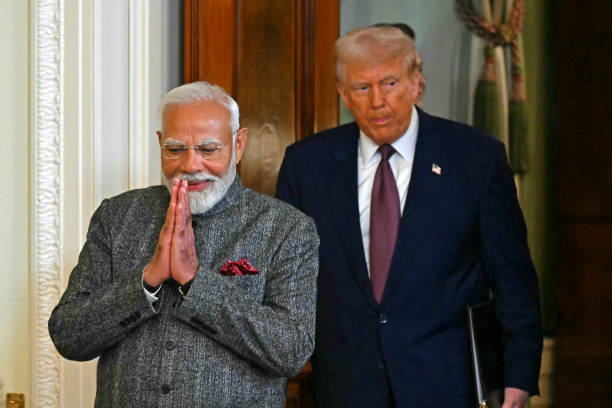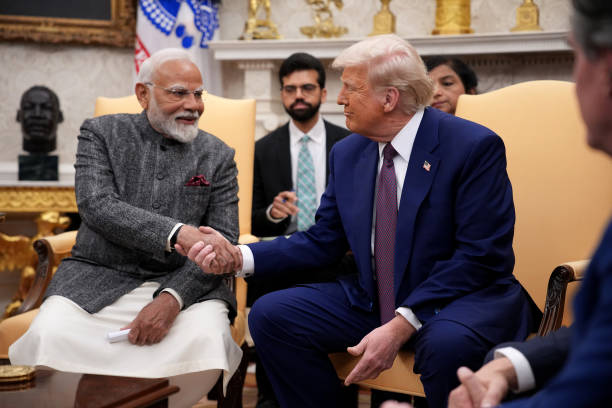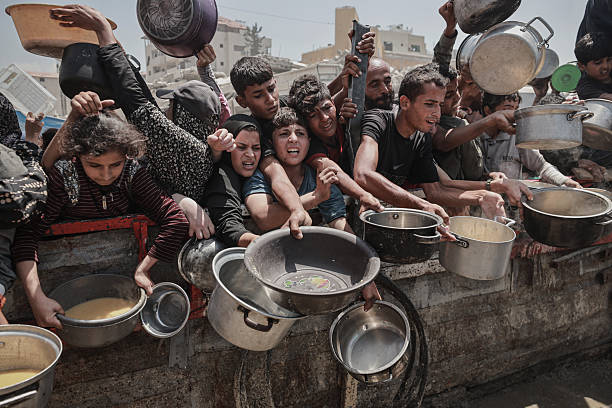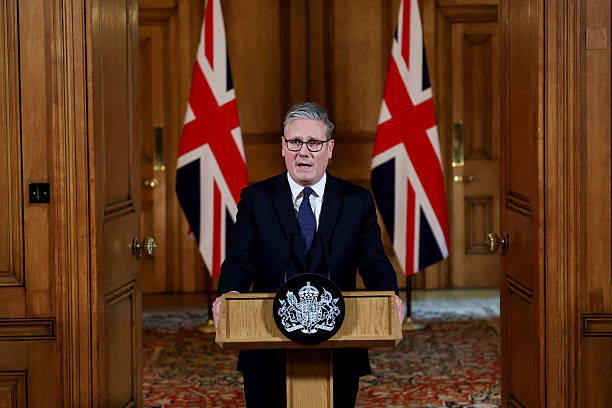U.S.-India Tensions Rise as Trump Targets Modi Over Oil, Pakistan
U.S.-India relations face growing strain as Trump imposes tariffs and criticizes Modi over Russian oil imports and warming ties with Pakistan.
 TOPSHOT-US-INDIA-POLITICS-DIPLOMACY-TRUMP-MODI
TOPSHOT-US-INDIA-POLITICS-DIPLOMACY-TRUMP-MODIThe once-celebrated camaraderie between Indian Prime Minister Narendra Modi and U.S. President Donald Trump has come under strain following a series of political and economic developments that have disrupted the bilateral relationship.
The friction, stemming from Trump’s imposition of tariffs and public criticism over India’s oil purchases from Russia and perceived U.S. favoritism toward Pakistan, has raised concerns among policy experts about the durability of a strategic alliance built over decades.

In recent days, Trump announced a 25% tariff on Indian goods and an unspecified penalty linked to India’s continued imports of Russian oil. He intensified the pressure in a social media post, accusing India of buying “massive amounts” of Russian oil and reselling it for “big profits,” suggesting India was indifferent to the human toll of Russia’s war on Ukraine. “Because of this, I will be substantially raising the Tariff paid by India to the USA,” Trump wrote on Truth Social.
Trump's frustration with the pace of trade negotiations with India has been described by a White House official, who spoke anonymously, as the motivation behind the tariffs. The official denied any strategic realignment with Pakistan but admitted the administration is applying negotiating pressure.
The Modi administration’s initial response was cautious. Commerce Minister Piyush Goyal reiterated India’s commitment to a “fair, balanced and mutually beneficial bilateral trade agreement,” while the Foreign Ministry initially downplayed any suggestion of strain. However, by Monday night, New Delhi’s tone had hardened. In a formal statement, the Foreign Ministry labeled Trump’s criticism “unjustified and unreasonable” and pledged to take “all necessary measures to safeguard its national interests and economic security.”
The statement justified India’s decision to buy Russian oil as a response to the diversion of traditional supply sources to Europe following the Ukraine conflict. “It is revealing that the very nations criticizing India are themselves indulging in trade with Russia,” the statement added.
Trade tensions are only part of the unraveling. Experts in India point to Trump’s increasing engagement with Pakistan as a major source of concern for New Delhi. The situation worsened in May when India and Pakistan exchanged military strikes over a gun massacre in Kashmir. Trump’s repeated claims of brokering peace between the two nuclear-armed neighbors have unsettled Modi’s administration, which maintains that Kashmir is strictly India’s internal affair.
Domestically, Modi has cultivated an image of being tough on Pakistan and has invested heavily in diplomatic efforts to isolate Islamabad. Trump’s remarks have therefore been politically damaging. After India’s opposition demanded clarity, Modi issued a statement denying any country had intervened to end the May conflict, notably omitting Trump’s name.
Trump has further irked Indian policymakers by praising Pakistan’s counterterrorism efforts, hosting a senior Pakistani military official, and announcing an “oil exploration deal” with Pakistan. He even speculated that India might one day have to purchase oil from Islamabad.
Sreeram Sundar Chaulia, an expert at Jindal School of International Affairs, said Trump’s apparent admiration for Pakistan has “definitely soured” sentiment in New Delhi. While he speculated the tensions might eventually ease, he warned that strategic confidence in the U.S. is being eroded.
India’s continued oil trade with Russia has also remained a sticking point. Despite pressure from the Biden administration early in the war, India ramped up purchases, becoming the second-largest buyer of Russian oil after China. Trump’s administration has publicly criticized this practice, with White House Deputy Chief of Staff Stephen Miller stating that India was “financing Russia’s war in Ukraine” through these purchases.
Despite the friction, some experts believe Trump's statements could be tactical. But the uncertainty created by shifting rhetoric and policy leaves room for speculation about the long-term trajectory of U.S.-India relations.
The current episode highlights the fragility of the partnership between two leaders once seen as close allies. As Trump continues to escalate public criticism, India has signaled it will not yield to external pressure and will prioritize its economic and strategic autonomy.
















Conversation